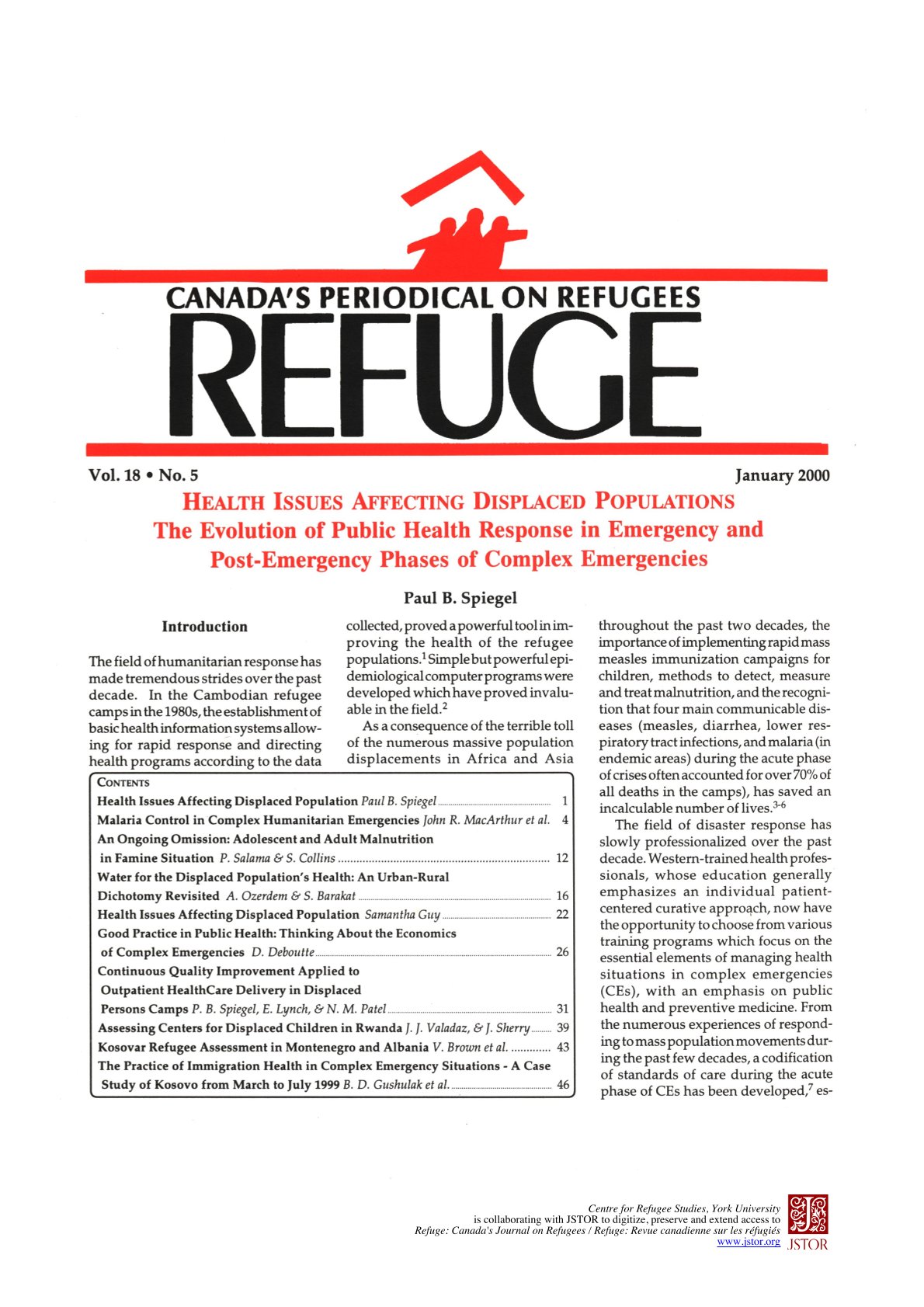Good Practice in Public Health: Thinking About the Economies of Complex Emergencies
DOI:
https://doi.org/10.25071/1920-7336.22049Keywords:
humanitarian aid, complex emergencies, public health, economics, health economics, ethicsAbstract
Emergency public health action is often faced with severe constraints. Limited resources are available to respond to sometimes-immense initial requirements and competing needs. Ethical decisions in public health can only be made when the decision-maker understands the arguments for and against, and decides in the light of this knowledge. Emergency budgets are not unlimited, have alternative possible uses, and can easily be wasted. Yet many aid workers find it impossible or unethical to consider the cost of emergency aid. This paper proposes to consider the use of economic methods in three ways: 1- to assist with rational decision-making. 2- to offer a tool for continuously monitoring interventions. 3- to enable programme evaluation in terms of cost-effectiveness.Metrics
Downloads
Published
How to Cite
Issue
Section
License
Copyright (c) 2000 Danielle Deboutte

This work is licensed under a Creative Commons Attribution-NonCommercial 4.0 International License.
Refuge authors retain the copyright over their work, and license it to the general public under the Creative Commons Attribution-Non Commercial License International (CC BY-NC 4.0). This license allows for non-commercial use, reproduction and adaption of the material in any medium or format, with proper attribution. For general information on Creative Commons licences, visit the Creative Commons site. For the CC BY-NC 4.0 license, review the human readable summary.







